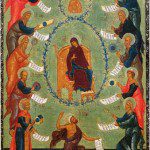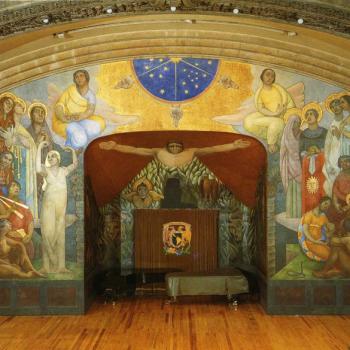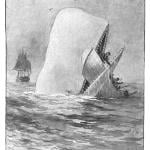It is often difficult for us to figure out our place in life. What are we supposed to do in it? Often, as the book of Ecclesiastes indicates, all we do seems to be in vain. Nothing seems to last. What, then, is the point? It seems all we leave behind is just rubbish. Do we just go about doing things without care for the good, taking life merely as a thing to enjoy when we are blessed by various pleasures? This, we find, was contemplated by the author of Ecclesiastes:
There is nothing better for a man than that he should eat and drink, and find enjoyment in his toil. This also, I saw, is from the hand of God; for apart from him who can eat or who can have enjoyment? For to the man who pleases him God gives wisdom and knowledge and joy; but to the sinner he gives the work of gathering and heaping, only to give to one who pleases God. This also is vanity and a striving after wind (Eccl. 2:24-26 RSV).
And yet, there has to be more, and in and with God, there is more. God’s eternity means his activity is eternal, and so what he does shares in that eternity:
He has made everything beautiful in its time; also he has put eternity into man’s mind, yet so that he cannot find out what God has done from the beginning to the end. I know that there is nothing better for them than to be happy and enjoy themselves as long as they live; also that it is God’s gift to man that every one should eat and drink and take pleasure in all his toil. I know that whatever God does endures for ever; nothing can be added to it, nor anything taken from it; God has made it so, in order that men should fear before him. That which is, already has been; that which is to be, already has been; and God seeks what has been driven away (Eccl. 3:11-15 RSV).
But does this not mean we can do nothing ourselves, that all we do adds nothing to what God has done? Again, our actions seem to be in vain. Nothing changes with God. So what can we do? We, who are in time, and see all we do fade away, end up asking ourselves once again, what is the use, why do anything? Should we just take pleasure in our meager existence and then vanish with everything else? Ecclesiastes shows the result of this line of thought:
So I hated life, because what is done under the sun was grievous to me; for all is vanity and a striving after wind. I hated all my toil in which I had toiled under the sun, seeing that I must leave it to the man who will come after me; and who knows whether he will be a wise man or a fool? Yet he will be master of all for which I toiled and used my wisdom under the sun. This also is vanity (Eccl. 2:17-19 RSV).
Part of the problem lies in our perspective. Even if what we do cannot change God and his eternal activity, this does not mean our actions are not taken into consideration by God in that eternal act. They are. Even if in the world what we do seems to vanish, it is taken up by God and into his eternal activity. What we do shall never be lost because it is brought into and united with God’s eternal work. It is able to be translated into the kingdom of God, because the kingdom of God is already within it. We can experience this in part now, but once our mode of experience changes, thanks to the resurrection of the dead, we shall no longer know it merely in its temporal reflection but in our own participation of eternal life.
Holding on to the temporal world and what is in it within its temporal modality will never satisfy; it will indeed always be in vain. Even the pleasures we gain satisfies for a short while before we get bored of them, and find ourselves once again feeling the world and all it has to offer is nothing. Only by establishing for ourselves “treasures in heaven,” that which lasts and satisfies us in eternity, can we find life itself is not in vain. “Do not lay up for yourselves treasures on earth, where moth and rust consume and where thieves break in and steal, but lay up for yourselves treasures in heaven, where neither moth nor rust consumes and where thieves do not break in and steal. For where your treasure is, there will your heart be also” (Matt. 6:19-21 RSV). Life is meant for us to give ourselves over to eternity. To make a suitable foundation for our eternal life, we must prepare ourselves for that change. What is to be done is that which is good, that which points to and participates in the goodness of God; this is our duty, and if we do so, we will find God’s judgment will be rendered to us by giving us our share in eternal glory. “The end of the matter; all has been heard. Fear God, and keep his commandments; for this is the whole duty of man. For God will bring every deed into judgment, with every secret thing, whether good or evil” (Eccl. 12:13-14 RSV).
Establishing ourselves in the kingdom of God, preparing ourselves for eternity, will often look foolish and in vain for those whose sight is only upon the world of change. They will not understand. The will think what we accomplish is little, and the value of our achievement to be minute. While we might accomplish much which will appear great in the kingdom of heaven, its presence here, in the temporal world, will likely appear far less than it actually is. Certainly some of us will incarnate the glory of the kingdom of heaven more than others, and so for some, the greatness will be more apparent, but we must not put our trust in appearances. Sometimes it is that which is humble and low here, that which appears to be failure, is where we find the greatest success.
We should focus on our vocation, and do what we can with it. It should not matter if we appear to be a failure in the world. Even if it seems we have done little, it often will prove that we have done more than we ourselves realize and the greatness of our work will reveal itself in eternity. We know, from multiple examples in history, how many people have come to the end of their life and find their life’s work to have had little to no influence in the world, only to have that work later discovered and appreciated by subsequent generations, making their work to have major role in the shape of history. But even if what we do appears to be negligible, and no one comes to know directly the way our work influenced history, we might find in eternity what we did was like a rock thrown down a mountain which resulted in an avalanche.














